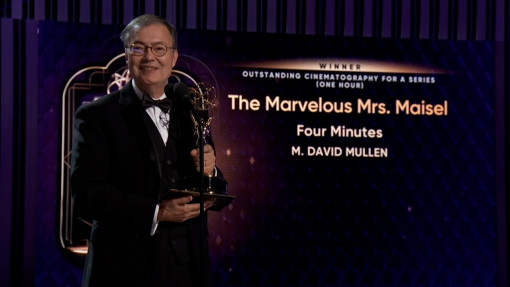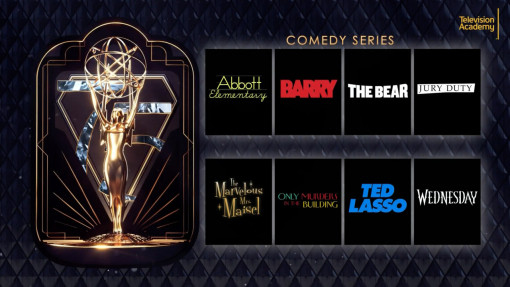“I’m drawn to roles I can disappear into,” Marin Hinkle says, “and totally become that person.”
Hinkle has been performing her vanishing act in Amazon’s The Marvelous Mrs. Maisel, where she brings Rose Weissman, the nervous, fiercely devoted mom of 1950s housewife–turned–standup comic Midge Maisel endearingly to life.
“When I auditioned, Rose felt so different from anyone I’ve ever played,” says the actress, who had a memorable turn as Judith, the cold-hearted ex-wife to Jon Cryer’s neurotic Alan in CBS’s Two and a Half Men. “Rose prides herself on her relationship with Midge and the idea that her daughter has found happiness living the same kind of life she is. When Midge follows a different path, it threatens every fiber of her being.”
Diving deep into the character has been easy, thanks to the show’s masterminds, Amy Sherman-Palladino and Daniel Palladino. “I have an only child, a boy,” Hinkle says, “so it helps that Amy and Dan know how to get to the heart of the mother-daughter relationship. That’s why Rose resonates with viewers.”
Having committed costars helps, too. Rachel Brosnahan, as the marvelous Midge, “is a total transformer,” Hinkle says. “Once she puts on her wig and makeup, she’s unrecognizable — this other creature magically comes out of her.”
As for Tony Shalhoub, who plays Abe, Rose’s beleaguered husband, “I’ve seen him in all kinds of roles, and each time I say, ‘Wait a minute, that’s the guy on Monk?’ He loves the disappearing act, just like me.”
Before starting her TV career on the daytime drama Another World, Hinkle studied ballet and appeared on the stage; the Maisel set, she notes, feels a lot like theater.
“Amy plants the camera far away and lets you perform scenes in one take. We’re interacting just like you do on stage. I love that.” With its theme of female empowerment, the Emmy-winning comedy couldn’t be more relevant, which thrills her — up to a point. “You would hope that people would watch and say, ‘Wow, look how much has changed,’ but sadly that’s not the case. We’re still dealing with injustice and inequality.”
But the show’s positive impact is undeniable. “You never know how much a show will touch people,” Hinkle says, “and we’re fortunate that we are.”
This article originally appeared in emmy magazine, Issue No. 6, 2019












